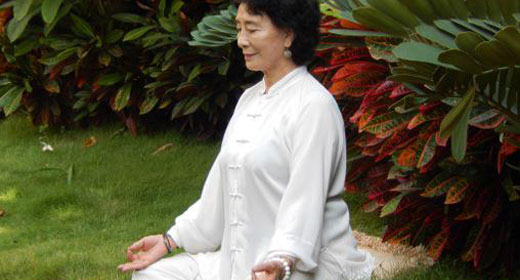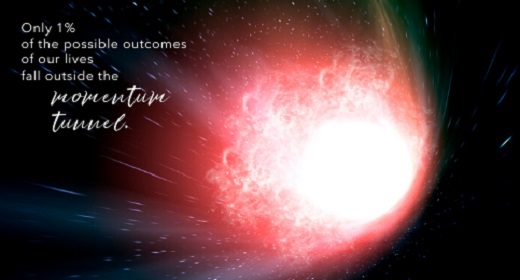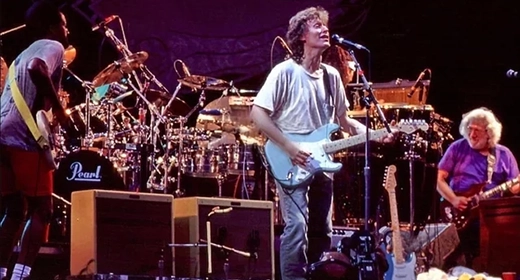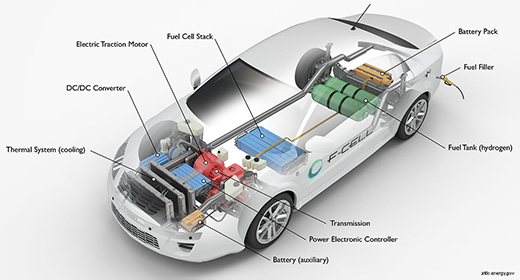David Welch: How would you describe Mindfulness?
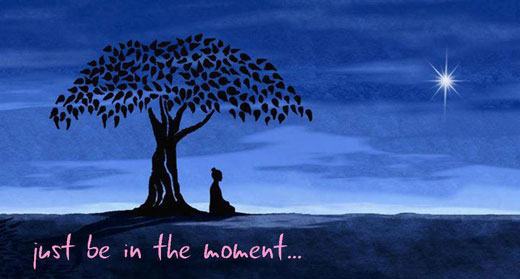
Gunner Michanek: Mindfulness is two things. It’s a method to get more aware consisting of different parts. We can come back to that. It’s also a way of living. It’s a way of being in a mindful state in the moment… to be present, to awareness, in every moment. If we look at the technique, it’s first, to be aware of yourself. You use the neuro-scientifically proved exercises to change the way you get aware of your organism. So you use different tools to get aware of your physical body, your emotional body and your mental body, so… thinking, feeling and the sensations in the body.
These exercises have been tried out on more than 22,000 persons at Massachusetts University Hospital. And they go through, how long should you do it, what type of exercise and what effect does it have. I’ve been in more than 20 different schools for this type of practice and the core of all of them is the same. What attracted me to mindfulness was it was scientifically proven. Should we do six, eight, or twelve weeks? Should we do once , five minutes or one hour a day? And they get really good results.
They have proved for most people that if go through an eight-week program with the daily training you will see a shift in the brain. You can measure the shift in the brain. All after only eight weeks. Of course, this is a start because this is no quick fix. But you can prove that something is happening when you train in this way.
David: Ok. So, I understand that there are ways and means to increase ones ability to be mindful and I’m also hearing you say that mindfulness is really a twenty-four hour a day practice. And I would assume that the practices and courses that take place over a period of time help build you so you can do this twenty-four hours a day.

Gunner: Exactly. The big difference from earlier practices I’ve tried where you get a lot of techniques to build up your focus training for example but then when you come out in usual life you lose it. So mindfulness is really, you train these basic skills. You start training them with yourself. Can you sit with yourself? Can you be in a room moving around… making food, cleaning? Can you stay in presence or do you go up into your wandering mind?
So first you start with yourself. And when you can do that…
David: When you say yourself.
Gunner: Just being as one person with yourself. Just staying alone doing this… because being aware of yourself when you are alone is not that difficult. It can be a hard process but then comes the next step, to stay in awareness when you meet the eyes of another person. For most people when you meet the eyes of another person, you change your breath and that changes your hormones and you know… blood pressure and all that. Can you stay in presence with one other person? It could be difficult. Then when you have done that can you stay in presence with groups or difficult situations? It’s not so difficult to be present with your best friend or relative but when they are so called enemies what happens with you? Do you go back into your old system or can you stay in presence?
David: What is presence?
Gunner: Presence is the capacity to be fully aware of what is happening within and outside yourself at the same moment.
David: I assume, without comment from the mind and that is the state that we are all looking to get to is this just ‘Isness’, we just are this beautiful state.
Gunner: Yea. I would say not necessarily without comment from the mind because to be in that state of nothingness is not so easy in my experience. But to be accepting of the noise from the mind, the sensations from the physical body and to accept them and just let them pass. So you can still be in presence in that silent part of you even if there are a lot of different waves passing through your organism. To get there, you need to train first, to stay in self-awareness with yourself. To expand it, stay in your awareness, inviting one person and then more people in your environment.
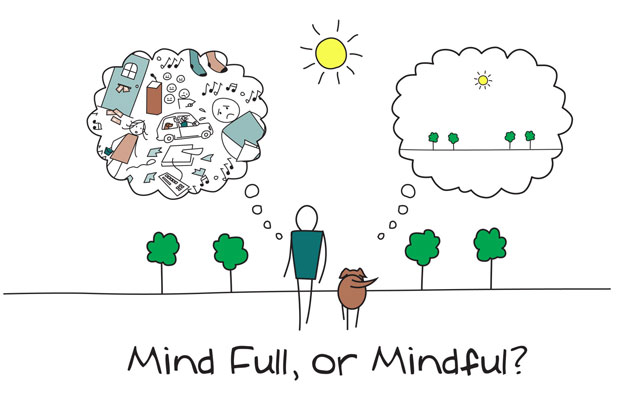
David: So let’s talk about some of these techniques that help you work with yourself first. So you can be present with yourself. So what are some of these techniques?
Gunner: There are two basic principles, Breath and Body. So the exercises are all focused on these two; to get aware of your breath, to get relaxed in your breath and also to be able to use the breath. To decrease the energy if it is too much… and to increase it if you are too tired. So that is the breath work and then embodiment. From the beginning when I learned, all traditions talk about embodiment. To be aware of every cell in your body makes you aware of the present moment. It can help you to be aware of the present moment. So the second step is to go into a lot of body awareness.
David: So it’s not just sitting? It’s actually moving also.
Gunner: It’s moving quite a lot. One is body scan where you go through different parts of your body and you GO into them. In the beginning, you think about them and later you feel them. And deeper, you go into an intuitive ‘knowing’ of the cells. You can do it quite fast with big parts of the body and you can do it a long time when you go really deep into specific small parts… the finger and the nails. So that is one practice. They call it yoga. I call it Awareness Yoga. It comes from the scientific research of Feldenkrais. If you move very slowly, you get to know the present moment from inside. So what they do in Mindfulness… is they do very slow movements. Very slow movements where you really get aware of parts in your body in a special way.
David: Now, movements, are these kind of like Tai Chi? Movements where one movement flows into the next movement?
Gunner: No, It’s more static movements. It’s more like you go to a position and you stay there in silence. You can bend your head so your left ear comes down to your left shoulder and stay there instead of five seconds… you can stay there for a minute. And just breath and stay there and then on your in breath, you lift your head up. And you go to the other side. Can that really change anything? Yes, it can. When I started six years ago… I did this with a girl who was in constant pain for eight years. And she had been to every hospital, really qualified ones, in Sweden. And we did this very small exercise for like five minutes with awareness in the body. And afterwards she said, ‘it’s impossible that this happened’… ‘For five minutes I did not feel any pain’. And for me, my heart was like ‘what’? She had really bad pain in her body. We were not fixing in any way her physical illness. But you could make a mental shift in Awareness. And when I realized that, I’m nearly crying now. I decided at that moment, I would work with this because the power of Awareness, of present Awareness is that strong… that you can get rid of your pain. To change your Awareness so you are not focused on the pain. Because every time I met her.. How is it? ‘Oh, it’s my shoulders, it’s so painful’. She was totally trapped on autopilot. But when we helped her to change this autopilot in her mental system and also the emotional system… it was like a total shift in her.
David: So, what I understand is that the first level of self is the body. You start mindfulness by focusing on the body. The key to focusing on the body is the breath. And then the key is moving the body with breathing.
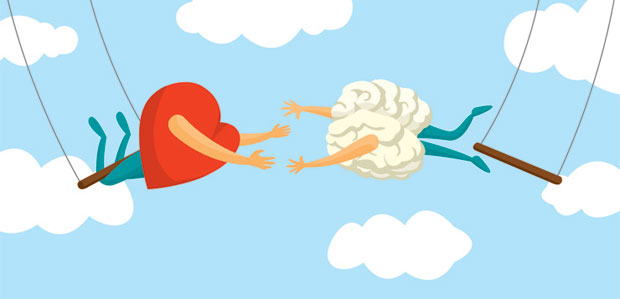
Gunner: Yea. So we say ‘Mindfulness’ but in Eastern countries, heart and mind are the same word. So when we say ‘mindfulness’, it’s the same word as ‘heartfulness’.
David: I’ve never heard that before in reference to mindfulness.
Gunner: Yes, in some countries in the East, they call heart and mind the same thing. So, it’s really ‘heartfulness’.
David: Explain that a little bit more because ‘heartfulness’ to me… Mindfulness, it’s more thinking and intellect and heart is about compassion and love and inclusion. So speak a little more about that.
Gunner: When you get aware about how this organism works. There are three main levels; the physical body, the emotional body and the mental body.
David: I noticed you touched your heart when you said ‘emotional body’.
Gunner: I’m a little sensitive about using the word, ‘heart’. Heart means a lot of things. So when I say emotional body I mean the whole body because it’s in all of your cells. When you think about ‘emotional’ many people think about their heart. I think there is more to the heart than just emotions. But in mindfulness we teach that there are three levels.
Read Part II Here: I’ve Come To My Intuitive Center, To My Soul
Read Part III Here: Come Down To The Deepest Level Of Your Intuition
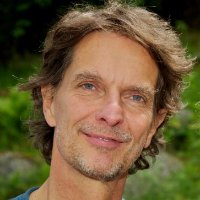 Gunnar Michanek: is a life-long mediator and has extensive experience as a teacher for leadership development through Mindfulness & Emotional Intelligence. In this capacity he has trained awareness techniques in hundreds of companies, at the Swedish Parliament and has run training programs for Mindfulness instructors. Gunner is also a film and T producer and is the founder of Mindfulnessgruppen and Minds Unlimited. Gunner lives in Stockholm, Sweden
Gunnar Michanek: is a life-long mediator and has extensive experience as a teacher for leadership development through Mindfulness & Emotional Intelligence. In this capacity he has trained awareness techniques in hundreds of companies, at the Swedish Parliament and has run training programs for Mindfulness instructors. Gunner is also a film and T producer and is the founder of Mindfulnessgruppen and Minds Unlimited. Gunner lives in Stockholm, Sweden
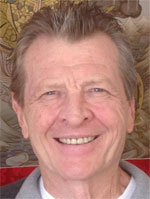 David Welch: is the founder and CEO of Awaken Global Media and Chief Editor of AWAKEN.com. He is the Producer of the award-winning movie “Peaceful Warrior” and a member of the Directors Guild of America and the Screen Actors Guild. David is a master practitioner of Neuro-linguistic programming, a certified Kundalini Yoga instructor and has a continuous, committed and daily yoga, meditation and Qigong practice.
David Welch: is the founder and CEO of Awaken Global Media and Chief Editor of AWAKEN.com. He is the Producer of the award-winning movie “Peaceful Warrior” and a member of the Directors Guild of America and the Screen Actors Guild. David is a master practitioner of Neuro-linguistic programming, a certified Kundalini Yoga instructor and has a continuous, committed and daily yoga, meditation and Qigong practice.

